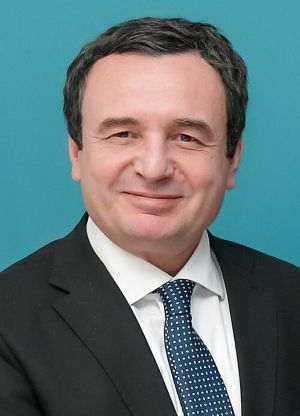The listing of Romgaz, the largest natural gas producer in Romania, is crucial for the future offers scheduled by the Romanian state, meaning that the Romanian authorities can't afford any misstep at the moment.
Local brokers, and more recently, the Bucharest Stock Exchange, through the resolute voice of the new CEO Ludwik Sobolewski, are pressing for the IPO of Romgaz to be kept in Bucharest only.
However, the government has more complex considerations to make then just satisfying the stock market community. He must also ensure the premises for conducting the public offers agreed with the IMF for next year, to get as much money as possible from the entire privatization program and to stimulate the financing through the stock market for the economy to stop being entirely dependent on banks.
• Sobolewski made the audience go silent, but what does that silence mean?
The new Polish CEO of the Bucharest Stock Exchange put on a show at the meeting he had last week with the representatives of the Department for Energy and with those of Goldman Sachs, which will intermediate the IPO of Romgaz, scheduled for this autumn.
Militating for the listing of the natural gas producer exclusively on the BSE, from a position of strength, Sobolewski sparked the admiration of the entire market community.
Brokers are worried that through a dual listing, as proposed by the intermediary and as the state seems to hint it likes it, the local stock market would be left without "blood", which would be drained by the other exchange like a vampire.
According to some sources, Sobolewski has made a show of force when negotiating the offer of Romgaz, causing the audience to go silent.
But, the client of intermediary Goldman Sachs is the Romanian State, not the BSE, and so it remains to be seen what the silence that set after Sobolewski's speech means, and whether his arguments were convincing.
Market sources claim that Ludwik Sobolewski had to please the shareholders of the Bucharest Stock Exchange, as he has just taken over the position of CEO, just as some of the shareholders of the BSE were getting ready to bring down the current Board of Directors.
At the same time, Sobolewski should be concerned with what would be good for the market in the long run.
• Goldman's proposals
In the beginning, Goldman Sachs proposed two alternatives to the Romanian state: a listing of the shares on the BSE and the GDR (global depository receipts) in London or a dual listing on the BSE and on the Warsaw Stock Exchange.
The exclusive listing on the BSE was not on the list of suggested alternatives.
Gabriel Dumitraşcu, the head of the Privatization and Administration Division of the Energy Department, has attracted the antipathy of the stock market community after he said that the Bucharest Stock Exchange was too small and would be incapable of ensuring the approximately 600 million Euros which the government wants to get for the 15% stake in Romgaz.
"We have talked a lot with the intermediary of the Romgaz listing over the last few months and we have come to the conclusion that we are running a major risk if we conduct the initial public offer only in Bucharest", said Dumitraşcu, at the end of June.
The Association of Brokers expressed its total disagreement with the position of the Government, accusing Gabriel Dumitraşcu of lack of vision.
The Association of Brokers said: "The recent result of the secondary offer of Transelectrica shows that successful privatizations can be done through the Bucharest Stock Exchange as well. Of course, the success of a public offer depends to a great extent on the manner in which it is prepared and advertised, as the messages which the Government sends to investors play an important part in this process".
• Does the BSE have enough "mojo" for the entire schedule of listings?
However, sources close to the authorities claim that the state needs to take into account the entire program of privatizations (the first one that is scheduled is Nuclearelectrica, then Romgaz, Electrica, Hidroelectrica), overall, and not just look at what "others want".
According to them, the argument of domestic brokers for the listing of Romgaz, only in Romania - because, like the brokers claim, the market has no liquidity issues -, may be valid on the first public offer, but not for all of them.
The quoted sources told us: "For Romgaz, it may not be a problem to raise up to 600 million Euros from the local market. But for a correct sale, the market needs to have double that liquidity. A public offer needs to be oversubscribed by 150%, ideally 200% in order to be considered successful.
The four companies that would be up for listing would have to raise over 1 billion Euros over the next 12 months, of which some would have to go to the state budget (in the case of Romgaz) and to the companies (the case of Nuclearelectrica, Electrica, Hidroelectrica).
Thus the stock market needs to be available with a dual liquidity. It is obvious for anybody, if we look at the overall privatizations schedule, that the market in itself can't carry it".
The quoted sources are saying that the people in the stock market community should stop complaining and think of the future benefits: "After Romgaz, the next IPO would Electrica. By then, it will become clear what will happen to the liquidity. We will have time to do estimates and to see if we will use GDRs in the offer of Electrica as well. The state is not required to use the same method in the future offers.
If we take Romgaz out of the equation, then that leaves a program of offers of a few hundred millions of Euros, for the domestic stock market. Moreover, other companies where the state has stakes, such as Transelectrica or Transgaz, are preparing bond issues. The stock market has no reasons to complain, it would actually do well to prepare thoroughly in order to satisfy the demands of the sophisticated investors from the US, Asia, the rest of Europe. London is the ideal place for intensive training".
The authorities have to play it safe, because a success of the offer of Romgaz could help promote Romania as a country, including its domestic stock market, according to the quoted sources. On the other hand, if a potential offer of Romgaz designed exclusively for the Romanian stock market fails, then the entire schedule of listings would be compromised, the quoted sources argue.
"If we take Romgaz on the BSE alone and it goes wrong, good bye other listings, goodbye bonds, good bye Sobolewski. The people in the market need to think carefully about what they want and not sacrifice the future for the sake of the future trading fees from Romgaz", the sources warn.
Even though it is true that the stock market doesn't seem to have a long term line of thinking, it is just as true that the listing schedule has suffered one postponement after another, so from that point of view, the brokers and the BSE would be happy to at least see the IPO of Romgaz happen, and then, come what may!
Aside from the talk concerning money, the liquidity of the stock market and finding the best option, the employees of the state have another argument for the option of taking Romgaz public which includes GDRs in London.
If the intermediary tells them that opting for the use of GDRs would get them a better price in the IPO, they could be held liable if they chose the other option which would bring in less money, as they are in charge of state funds, according to the quoted sources.
Securing their own backs comes first, regardless of how much anyone cared for the state, Romgaz or the stock market.
Of course, it all depends on how the intermediary will formulate its concrete proposals, on whether it guarantees or not achieving a greater price by issuing GDRs in London. The statements of the intermediary will be easily verified at the end of the offer: if the orders for subscribing at the highest prices will be placed predominantly for GDRs, then that will undeniably prove that it was their existence that caused the final price of the IPO to be high, sources close to the authorities explain.
Once an alternative was chosen, however, it becomes impossible to check whether the outcome of the other choice would have confirmed the initial estimates.
Still, according to the sources, the decision makers could be sued for choosing a less profitable option, based on the reports of the intermediaries, after the pre-marketing offer for the IPO.
• After Romgaz, come what may?
The sources close to the offer of Romgaz are saying that what will happen after the offer also has to be taken into account: "Perhaps the Stock Exchange has sufficient resources to accommodate an offer of 600 million Euros, but it then needs to provide liquidity to ensure that the price doesn't drop.
If the price of the shares falls, because all of the liquidity has been absorbed in the IPO, then the value of the state's remaining stake (70%) will drop. It would not be good! The state is interested in having the price rise after the IPO as well. Also, there has to be liquidity in the market for the other listings, for the bonds of state owned companies, as well as for the private ones ".
• To work!
The quoted sources also say that some of the domestic brokers don't have any means of bringing in liquidity and investors: "The stock market lacks the means, and also lacks the intention.
There are some of the local brokers, shareholders of the BSE, who haven't done enough for the stock market to grow. They don't want to lose control of the stock exchange, but the latter is dying. They don't care what happens after the offer. They are not objective.
They are just making short term calculations. They haven't accepted any sacrifice to allow the stock market and the overall economy to benefit".
The quoted sources claim that the stock market needs to get organized, to find a shared vision and to be willing to make a common sacrifice.
"The stock market needs to participate in the effort of its own turnaround, to keep the General Shareholder Meeting at BSE, to appoint someone for talking to the NBR, the Ministry of Finance and the Financial Oversight Authority for the project of the Central Counterparty, which is extremely important, to accommodate derivatives and bonds which on any stock exchange account for the bulk of the transaction.
For now, the capitalization of the BSE is five times smaller than that of the Warsaw Stock Exchange, but its liquidity is 25 times smaller than that of the latter, which means that the BSE is five times less efficient. Mathematic reality ".
• Bank depositors disregarded
Bank clients have 40 billion Euros in deposits, so there would be enough money for the privatization program right here in Romania, instead of abroad.
But the stock market had never even lifted a finger to try and get them interested, and in the offers of the state, the intermediaries have constantly focused on foreign investors.
They have flattered them in every possible manner, in the hope that maybe they would throw some spare change our way.
And yet, nobody all over the country, went knocking on doors and no one came out on TV to explain about "that thing with Romgaz". Domestic investors would deserve a discount equal to the interest paid on bank deposits, accessible trading mechanisms, sufficient liquidity to allow the price of the shares to rise, and the guarantee of investing in effective corporate management.


















































